In the News | Older
 |
In the NewsNovember 2, 2011How cutting Pentagon spending will fix US defense strategyBenjamin FriedmanForeign AffairsAusterity is the best possible auditor. |
 |
In the NewsOctober 20, 2011Chappell Lawson on border securityPeter DizikesMIT NewsWith national security and immigration prominent as political issues, border control is a perennial topic of debate in the United States — especially as the presidential campaign heats up. What are the chief border-security issues now facing the country? |
 |
In the NewsOctober 20, 2011Get ready to starveChristian CarylForeign PolicyThe West was just gearing up to send food to a hungry North Korea. Then came the death of Kim Jong Il. |
 |
In the NewsOctober 18, 2011Two African women won Nobel Peace Prizes, but the continent still has a long way to go to gender equalityJackee Budesta BatandaBoston GlobeLess than a year ago, women helped lead the reform movements that swept across Libya, Egypt, and Tunisia. But now that those uprisings have succeeded, and the world's attention has shifted elsewhere, women are once again being shoved aside. |
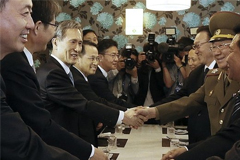 |
In the NewsOctober 18, 2011North-South Korea talks in US serious, but civilHarry R. WeberAssociated PressNorth and South Korean representatives holding informal talks in the U.S. are sitting together at meals, sharing laughs and even breaking out together in song. But long-standing disputes still cropped up Tuesday on Day 2 of the summit at the University of Georgia. |
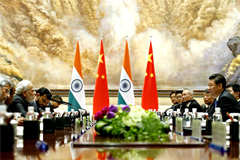 |
In the NewsOctober 4, 2011China's response to a rising IndiaErin FriedNBRStrategic Asia 2011–12: Asia Responds to Its Rising Powers—China and India is the eleventh volume in the Strategic Asia series and explores how key Asian states and regions are responding to the rise of China and India. NBR spoke with M. Taylor Fravel, Strategic Asia contributing author, National Asia Research Associate, and associate professor at the Massachusetts Institute of Technology, who argues that China views India’s rise as a largely positive development that promotes China’s own interests and objectives more than it threatens or challenges them. |
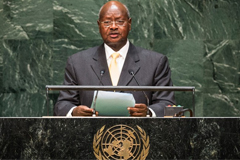 |
In the NewsOctober 3, 2011Museveni's grip on UgandaJackee Budesta BatandaBoston GlobeDon Innocent Wanyama, an editor with the Ugandan newspaper, Daily Monitor, wrote on Facebook, “I had never paid attention to who Vincent Nzaramba was. But our gov’t, as usual, makes me take note. I have just downloaded a copy of his book - which has caused security agents to detain him. Surely, with our poor reading culture why detain someone for writing a book? The regime should worry more about someone who sings. . .’’ |
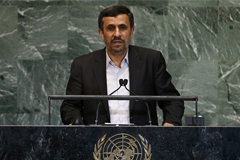 |
In the NewsSeptember 26, 2011A weakened AhmadinejadJim WalshCNNSome of the stereotypes of Iranian President Mahmoud Ahmadinejad fall short of the mark, says Jim Walsh. |
 |
In the NewsSeptember 17, 2011When death came hand-deliveredEdward Jay EpsteinWall Street JournalBiological warfare came to America soon after the 9/11 attack. In Florida, a photo editor died of inhalation anthrax. At the time it was thought to be an isolated incident. But then anthrax was found in New York in the newsrooms of NBC and the New York Post, together with letters dated "09-11-2001" and warning: "Death to America Death to Israel Allah Is Great." |
 |
In the NewsSeptember 15, 2011Tokyo's transformationEric Heginbotham, Ely Ratner, and Richard J. SamuelsForeign AffairsHow Japan is changing -- and what it means for the United States. |
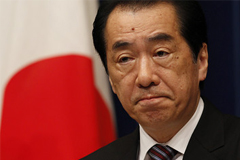 |
In the NewsAugust 19, 2011Japan after KanChris AchesonNBRAlthough Kan’s resignation may assist the Democratic Party of Japan (DPJ) in rebuilding public trust in its ability to lead, questions remain about the future of the DPJ and the political structure of Japan as it stands today. Japanese domestic politics expert, Richard J. Samuels, provides insight into the DPJ, its political strategy, and the challenges the next administration will face. |
 |
In the NewsAugust 11, 2011In profile: Kenneth OyePeter DizikesMIT NewsA political scientist aims to help governments assess the potential risks of new technologies. |
 |
In the NewsJuly 4, 2011Supreme tragedyHussein BanaiMuftahAlthough he does not wear a crown (his black turban is as indistinguishable as the next cleric’s), Iran’s Supreme Leader Ayatollah Ali Khamenei has increasingly become regarded as a potentate in the tradition of Middle Eastern autocrats. As the renowned Iranian journalist and dissident, Akbar Ganji, has written of “Sultan Khamenei”’, “[he] has used his broad mandate to exercise control not only over all three branches of government but also over economic, religious, and cultural affairs, sometimes directly and sometimes through various councils or through the Revolutionary Guards. |
 |
In the NewsJune 28, 2011'Collective autism' about the costs of warChris LydonRadio Open SourceJohn Tirman is trying to explain how the United States got in the habit of fighting wars without a scorecard. We’re a country, curiously, that can focus like fiends on earned-run averages and on-base percentages. But who among us, on a pop quiz, could come up with the figures on how many died in the Iraq war, compared to the Vietnam war, Korea, the two World Wars, and the annexation of the Philippines at the turn of the 20th Century. |
 |
In the NewsJune 22, 2011David Singer on the Greek Euro-tragedyPeter DizikesMIT NewsThe economic and fiscal woes of Greece remain at the center of European politics. In recent months, a variety of economists and commentators have asked if Greece should consider the unprecedented move of leaving the European Currency Union, so that it could control and lower its own currency rate, in order to spur exports and growth at a time when its economy is struggling badly. David Singer, an associate professor of political science at MIT, discussed Greece and the Euro-mess with MIT News. |
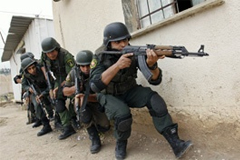 |
In the NewsMay 26, 2011Is it really a new start for Palestinians?Peter KrauseProvidence JournalThe unity deal between Fatah and Hamas may well be "historic," but not in the way most news outlets have suggested. Not only is this one of hundreds of unity deals signed by Palestinian factions over the past 50 years, but it is not even the first unity deal signed between Hamas and Fatah, the most recent such agreement coming in 2007. |
 |
In the NewsMay 16, 2011IMF turmoil unlikely to derail Euro debt talksBob MoonNPR's MarketplaceJust last week, a Bloomberg survey of international investors found 85 percent expect Greece to default on its debt -- that's a stark indicator of the urgency facing the International Monetary Fund in pushing for a resolution to the ongoing crisis. As the former finance minister of France, Dominique Strauss-Kahn's authority on Europe's debt crisis has been widely respected. And his political clout had moved negotiations toward agree. Now these talks face new uncertainty. |
 |
In the NewsMay 5, 2011The President's triumph: Obama gets his manChristian CarylRadio Free Europe/Radio LibertyThe U.S. Special Operations Forces raid that killed Osama bin Laden drew on the efforts of a large team of people from myriad branches of government working in locations around the world. All of them -- including many whose roles may never become public -- deserve a share of the credit. Yet it seems likely that it's the most public figure in the operation who stands to gain the greatest benefit from its success. And if many of the experts are right, he's earned it. |
 |
In the NewsMay 3, 2011Fotini on the war in AfghanistanPeter DizikesMIT NewsWhat impact will the death of Osama bin Laden have on the U.S.-led war in Afghanistan? And what effect will it have on the often-tense relationship between the United States and Pakistan? Fotini Christia, an associate professor in the Department of Political Science, is conducting ongoing research in Afghanistan and has written widely on the subject. MIT Newsspoke to Christia about the outlook in the region. |
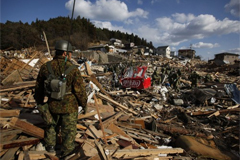 |
In the NewsMarch 24, 2011Japan after the quakeWBUR: On PointJapan is no stranger to natural disaster and struggling back. From shogun, samurai days and far earlier, the Japanese have faced earthquake and tsunami and war, and famously persevered. But some epic events have changed Japan, within that perseverance. |


